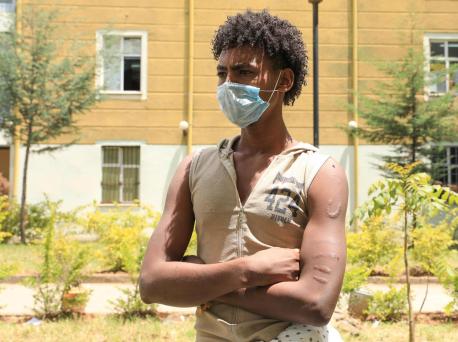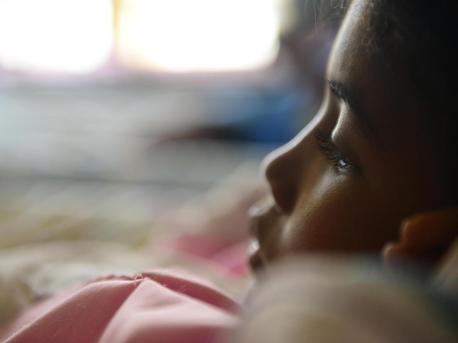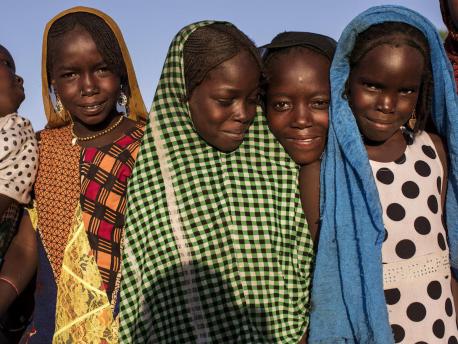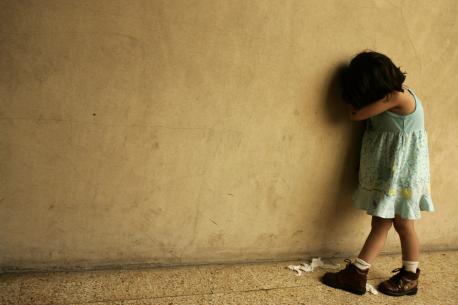
Global Partners Take On the Commercial Sexual Exploitation Industry
On May 11 and 12, 2015, The Carter Center and Rotarians Against Child Slavery convened “The World Summit: End Sexual Exploitation 2025”, with representatives from countries around the globe, to create a coordinated action plan to end the commercial sexual exploitation of women and children.
Human trafficking has received the spotlight in many conversations over the past few years. CNN created the Freedom Project to highlight the issue. Half the Sky covered the stories of women and girls who had been trafficked. The National Human Trafficking Hotline is now required to be posted in restaurants, bars, truck stops, and other venues in several states in the US. With all of this attention, how much was being done to create a coordinated effort among citizens, government officials, and NGOs to stop the scourge of human trafficking?
On May 11 and 12, 2015, The Carter Center and Rotarians Against Child Slavery convened “The World Summit: End Sexual Exploitation 2025”, with representatives from countries around the globe, to create a coordinated action plan to end the commercial sexual exploitation of women and children. For nearly 30 years, UNICEF and Rotary have been working together to end polio forever, and we are this close to eradicating the disease. With Rotary’s 1.2 million members dedicated to tackling the world’s most pressing humanitarian challenges, I am confident that, together, we can also End Trafficking.
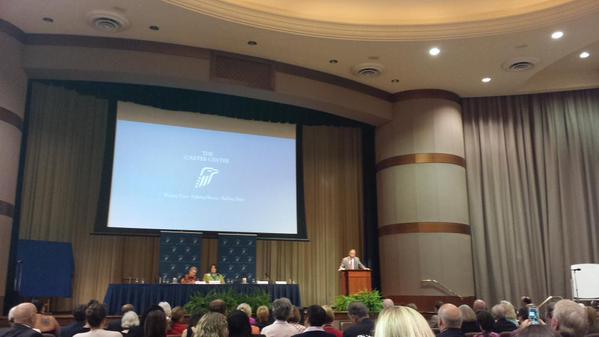
It didn’t take me long to realize that this conference was different. We weren’t there to learn, we were there to work. Participants were divided into four working groups: Law Enforcement, Legislation, Survivor Services, and Business Community Engagement. Each group was composed of diverse stakeholders including survivors and other anti-trafficking advocates, faith-based communities, service and advocacy organizations, business leaders, and law enforcement. Over the two days, each working group discussed solutions that are currently working, identified gaps in the field, and created 1, 5, and 10 year action plans to “strategically dismantle the sexual exploitation industry.”
As part of the Survivor Services Working Group, I worked with experts and survivors such as Vednita Carter, founder and Executive Director of Breaking Free and a pioneer in the abolitionist movement in the US. Dr. Brook Bello, CEO/Executive Director of More Too Life, facilitated our conversations and worked to ensure that everyone’s voice was heard. The room was filled with passionate global and local activists working together not to advance our individual agendas, but our common goal to end trafficking.
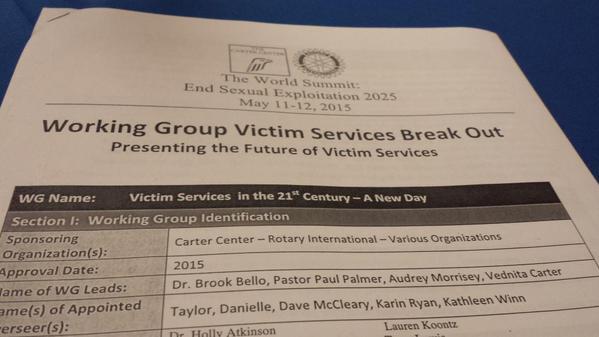
On the second day of the summit, something extraordinary happened. Former US President Jimmy Carter sat on stage with representatives from each of the four working groups, as they laid out the 10 year plans we had developed. Throughout their presentations, President Carter was vigorously taking notes, paying attention to each detail they shared. At the end, he stood up and spoke to us about how he came to learn about the issue, the importance of what we had just done, and provided us with input and guidance on our proposals.
I knew at that moment that those of us in the room were part of something historic. We had just laid the groundwork to tackle the demand for commercial sexual exploitation, create allies within the business sector, develop comprehensive programs for survivors of trafficking, and pass legislation to equip law enforcement with the tools they need to arrest and prosecute the real criminals: traffickers and buyers.
Over the next 10 years, the working groups, participants, and new allies will continue to come together to evaluate our progress and push forward our action plan. When our children ask us, “Where were you when millions were being bought and sold for sex?” we can tell them that we were fighting back. What will you say?
To find out how you can take action to end trafficking, download our resources here.
